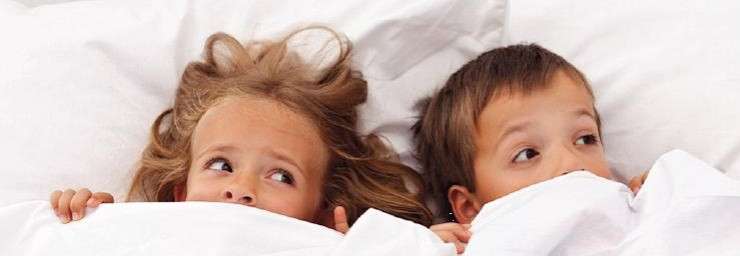A recent study conducted by the Canadian Paediatric Society has released some shocking statistics about the state of children’s sleep for Canadian families. The study suggests that 70% of children have trouble falling asleep naturallyand that 30% of parents have resorted to over-the-counter medications to help their children fall asleep. While a lack of sleep in children can be incredibly harmful (it puts children at risk for behavior problems, learning problems, and obesity), no one knows the long-term effects of melatonin supplements that some parents are now relying on. Clinical sleep education sessions have been shown to greatly improve child sleep and are a much healthier alternative to sleep medications.
Amanda Hudye, Certified Child Sleep Consultant and Founder of SleepWell Baby, shares her five tips for safe and independent child sleep.
1. Realize that sleep is a behavior that we all need to learn. It is not uncommon for children with poor sleep skills to become adults with poor sleep skills.
2. Focus on sleep hygiene. Expose your child to light during the day to set her circadian rhythm, or body clock. Implement a soothing routine before bedtime, which may include a bath, time to wind down, quiet play or reading.
3. Understand that screen time inhibits the body’s production of natural melatonin. The blue light that is emitted from our devices can prevent our bodies from reaching the deeper stages of sleep. It’s during these stages that the growth hormone is secreted. When children don’t get the benefit of the growth hormone they wake up feeling unrested. No screens after supper is a good family rule to promote healthy sleep.
4. Take a look at the sleep schedule. Most children are not getting enough sleep. When children are overtired their bodies secrete excess cortisol, which makes it difficult for them to fall and stay asleep. Babies, toddlers and younger elementary school age children still need 11-12 hours of sleep per night.
5. Do a sweep of your child’s environment to ensure it promotes healthy sleep. The room should be dark, cool and quiet. Rooms that are free of distraction and clutter are more conducive to settling little bodies to sleep.
For more healthy sleep tips and to learn more about SleepWell Baby consulting services, visit http://www.sleepwellbaby.ca.


